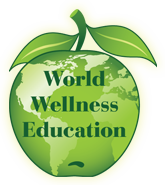 You have probably noticed that a number of the vegetarian recipes use seeds and nuts. These versatile ingredients actually make you feel like you are having meat in your vegetarian recipe. There are a number of recipes for raw nut pates that are great to serve as a vegetable dip or as a part of a filling salad.
You have probably noticed that a number of the vegetarian recipes use seeds and nuts. These versatile ingredients actually make you feel like you are having meat in your vegetarian recipe. There are a number of recipes for raw nut pates that are great to serve as a vegetable dip or as a part of a filling salad.
Nuts have been an important food as a part of a raw food diet. Nuts contain healthy, unsaturated fats which can help lower the risk of heart disease. They also provide magnesium, which helps maintain bone structure; and chromium, which helps to ensure proper insulin function. Nuts contain zinc for growth and wound healing, and manganese, which protects against free radicals. All nuts are a good source of vitamin E, an important antioxidant. Like all plant foods, they are high in fiber and phytochemicals—both of which help protect against cancer and other chronic diseases. . But it is important to know whether you should buy organic or non-organic nuts.
Let’s take a look at the different types of nuts and seeds:
Almonds are not actually raw unless you purchase them from the grower. The USDA pasteurization laws require them to be pasteurized before they are sold in the super market. These nuts easily absorb pesticides because of their high oil content so it is best to purchase organic almonds.
Cashews have been treated with endosulfan which is a highly toxic to humans and animals. They are also not actually raw since part of the process to bring them to market requires they are heated. Purchase organic cashews!
Pistachios may be treated with phosmat. Cornell University completed a study that indicates phosmat causes liver tumors and carcinoma. And on top of this, phosmat is extremely toxic to honey bees. Again, buy only organic pistachios.
Sunflower Seeds like almonds have a high amount of oil and fat content that absorbs pesticides easily so it is best to buy organic.
Walnuts have a lot of pest issues and as such are saturated with pesticides and more chemicals than any other nut. Their fat content allows them to absorb these chemicals so again buy organic.
Sesame Seeds are grown in Africa and Asia where pesticides are not monitored so it is best to buy organic
Macadamia Nuts are treated with atrazine which has been shown to harm aquatic organisms and there is some evidence that it has a negative impact on human reproduction. Buy organic only.
Peanuts are not really a nut; they are a legume and are grown in the ground where they have ample time to absorb all of the pesticides. Along with this, peanuts grown in certain regions where there is high humidity grow a mold that produces aflatoxin which is a potent human carcinogen. Organic peanuts are grown in the South West where the humidity is not a problem.
So in a nutshell, it is extremely important to purchase organic nuts and seeds.
Resources
Grinningplanet.com
Livestrong.com
Ehow.com
 Jean Sumner, author of “52 Tips to be Healthy” and co-founder of World Wellness Education has been involved with the health and wellness industry since 1996. An avid runner, she is passionate about exercise, eating healthy and maintaining a healthy lifestyle. Jean was diagnosed with cancer in May, 2009 this only served to fuel the flames of her passions.
Jean Sumner, author of “52 Tips to be Healthy” and co-founder of World Wellness Education has been involved with the health and wellness industry since 1996. An avid runner, she is passionate about exercise, eating healthy and maintaining a healthy lifestyle. Jean was diagnosed with cancer in May, 2009 this only served to fuel the flames of her passions.
Jean pursued alternative methods of treating cancer and met countless individuals who had great stories to tell regarding how nutrition, spirituality and exercise helped them to overcome their various illnesses. Since these stories were moving, motivating and timely she thought that each of these stories may make a difference in others’ lives. With the knowledge that we learn from stories more quickly than other teaching methods, an organization was born in hopes to make a difference in the well-being of every individual on the planet. That organization is World Wellness Education.








Thanks for the heads-up about how I should be wary of pests when it comes to taking care of walnuts. I’d like to buy some organic sprouted walnuts because I’d like to slowly turn my garden into an auxiliary food source. I’m sure that having some nuts will be a good way to garnish some of my dishes.
I buy all my nut organic, and I get them at the health food stores…
Brazil nuts are one of the healthiest nuts you can eat, and you only need to eat
2 of them a day…if you give to your animals , they can only have 1/2 of one
1 time a week.
I start to buy organic food a few years ago. When I buy nuts and seeds, organic and raw as well, I soak and dry them before consuming. It make them more flavorful and tasy, and also, allowing more nutrients to be available for absorbtion. I know also, that lots of people can’t afford organics. So, my question is whether soaking help to illuminate most of the toxins?
I understand that buying organic nuts and seeds is the way to go, the problem is that its so expensive to buy organic, most people just cant afford it.
I love the information and want to read more about it. Please post your list of references for this article about organic vs non-organic nuts or email them to me. I will greatly appreciate it.
Even with the higher prices, In the long run as far as your health and the health of the planet is concerned, organic is most always best.
I had no idea that almonds aren’t raw unless you purchase them from the grower. I’ll be sure to try and find the almond growers in order to get them raw. I also appreciate what you said about how easily almonds absorb pesticides.
I appreciate your clarity re: organic vs. conventional nuts. Because the cost of organic nuts is so high, and I am on a budget, I’m wondering if soaking and dehydrating (which is my practice with nuts) will detox the pesticides?
If not, I’d appreciate if you might give me the best source for my budget for walnuts & almonds. Nut muffins are a staple.
Thank you for your good work for us!
Marsha
Wondering what is best source for organic almonds. Online or place like Whole Foods??
Just to be healthy and safe, buy organic whenever possible. Especially on the dirty dozen of fruits and veggies. If you can’t find organic nuts, go to organic nut websites. It may be a hassle if you have to buy ahead of time but well worth it.
Does anyone know a reasonable priced and trusted place to order organic nuts and seeds? Diana
Is it important that unshelled almonds, walnuts, filberts, pecans, etc. be organic? Thanks!
– first things first. in that cute pctuire of emilee, she’s just taking a quick peek to see if daddy is still taking more pctuires. as for the drum set, get the jr. set. keep in mind that you may want to change some hardware (cymbal stands, high hat stand, kick pedal, etc.) in the relatively near future.
I want to eat raw and organic nuts and seeds, but I am finding out that the organic raw nuts that I have been buying may be pasteurized and not raw at all. How can I be sure I buy raw organic?
This is very troubling to me as I understand that pasteurizing changes foods and never in a good way.
Please inform me,
David Darell Galbraith
Undeniably believe that that you stated. Your favorite reason appeared to be on the web the easiest thing to have in mind of.
I say to you, I definitely get irked even as people consider issues that they plainly
don’t know about. You controlled to hit the
nail upon the highest and defined out the entire thing with no need side effect ,
folks could take a signal. Will probably be back to get more.
Thanks
What about pumpkin seeds? I can imagine the answer is the same but just checking.
I came across this article, perhaps a little old, but relevant. In the last number of years, due to a very strong allergy to birch tree pollen, I’ve developed a case of OAS (Oral Allergy Syndrome) and have been researching why some things bother me while others do not. For instance, certified “organic” nuts such as walnuts, hazel nuts, and almonds as well as those that are freshly shelled (Say from that Christmas mix that no one ever eats), will make my throat and ears itchy almost immediately, while those nuts in in-store bought trail mix do not bother me. My research seems to indicate it’s the pasteurization process that makes them less reactive. It changes the proteins enough that my body no longer thinks I’m eating birch trees. I do love nuts, especially walnuts. The question is, is there a pasteurized AND organic option or are they mutually exclusive?
What about Pecans?
I believe that endosulfan, quoted in this articles as used on cashews, has been banned for many years in most countries, including the US. Can the author prove that endosulfan is presently being used in cashew cultivation or processing?
Very glad you posted this. If it takes hours it’s worth finding what you are looking for. I was purchasing frm nuts.com and recently found they are a monopoly who is now contracted with Reeses & Hersheys. I consider every company on the anti-labelling campain a terrorist organisation, and I WILL NOT CONFORM TO TERRORISM, OR THE DEGRADATION OF MY OWN FREEDOM to save some fiat petrodollars. Find small businesses it’s worth it, and always buy organic. It will be hard to find the little guys, but it’s a very very long chain of positive outcomes with every $, not to mention overall better health, and environmental impact. My gf and I make min. Wage, so I know how it is, everything but produce we buy in bulk. Cornucopia institute is a good reference when it comes to corporate retail brands(last option)
I am distressed to hear about nuts.com. That is where I purchase my organic nuts for nut butters etc. Does anyone know a small company that will supply organic nuts in or around New Jersey?
i WONDER ABOUT PINE NUTS?
I grew up with a walnut tree in our backyard and we always threw out the ones with the holes in the shell. The insects had hatched while inside, being laid before the shells had hardened. They ate their fill and after their way out of the nut so we knew the holey ones would not be good inside. I’m sure the insecticide that is put around the walnut trees would come up through the roots and thus be SYSTEMIC toxin, not a sprayed on one. Many foods have issues from systemic toxins and thus CAN’T be washed off. Organic is the way to avoid this.
Yes, please explain how the pesticides reach the nut when many nuts are protected by a hard shell. This would be very helpful in progressing our understanding.
Through the roots of the tree.
How is it possible for walnuts to be covered in pesticides?? They have a large thick husk around the hard outer shell itself. It’s a pain to even get the husk off. These seem pretty protected.
AS WITH MOST OF ANY PLANT, THROUGH THE ROOTS!!
what about brazil nuts do they have to be organic ?
In my opinion, yes.
The thing about Brazil nuts is that they grow wild and don’t need pesticides. HOWEVER, they COULD be sprayed post harvest to insure no bugs or fungus. Same with dates ( not a nut, I know, and not wild, but they do not need pesticides to grow.)
what about pecans?
It is distressing about the walnuts, they are very hard to find organic, and I always assumed the hard shell would protect them from sprays.
very distressing and depressing news about nuts and seeds. will buy organic from now on.
Thank you!!!
I’ve read that commercial walnuts are sprayed with pesticides at multiple points of their development, so the seed inside the hard shell has been sprayed to the point of saturation while it was developing.
So buy only organic